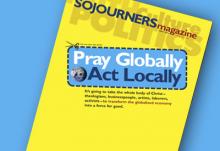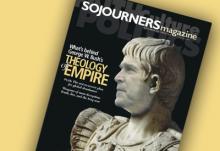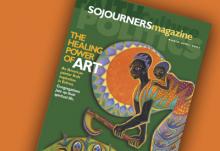These paintings were part of an exposition held in Buenos Aires, Argentina. It was no ordinary exposition.
Art
In Image and Spirit, author and artist Karen Stone recounts comments she overheard in a modern art museum one November day
I avoid movies with car chases and wish more television heroes were not both handsome and single. In my reading, however, I tend to be more open-minded.
The Motor City may never lack for drama, but until the Mosaic Youth Theatre came along there were few opportunities for young people to express themselves on stage.
THANK YOU, Don Michael Hudson, for an intelligent, well-thought-through article on the arts and the Christian's freedom toward them
For too long civic participation in the arts has been viewed as the domain of the wealthy, but a new study by the Urban Institute suggests otherwise.
For years activists have called attention to the plight of the Palestinians through protests, teach-ins, and seminars.
The Gallery at the American Bible Society in New York City recently presented "Reflections on Glass: 20th Century Stained Glass in American Art and Architecture."
Worshippers at St. Mary's Episcopal Cathedral, in Glasgow, Scotland, are now sharing pews with Scotland's most avant-garde artists.
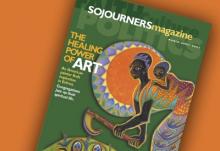
A national study documents what many congregations already knew—that the arts are good for faith, and faith can be good for the arts.
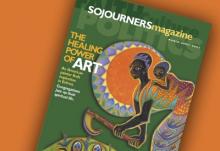
Atlanta's Ebenezer Baptist Church's new building demonstrates how architecture can incarnate the history, strength, and spirit of a people.
"Art has the power to heal spiritual, emotional, and physical brokenness."
Artist Barry Moser's new illustrated Bible shows that the people of scripture---and books themselves---are very much alive.
